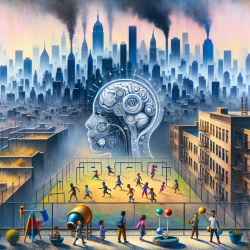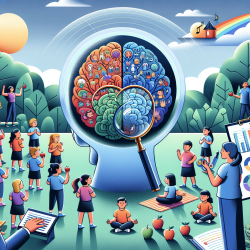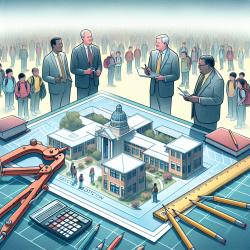In the bustling environment of megacities like Mexico City, air pollution poses a significant threat to the cognitive development of children. The research article "Air Pollution, Socioeconomic Status, and Children's Cognition in Megacities: The Mexico City Scenario" sheds light on this pressing issue. As practitioners dedicated to enhancing children's educational experiences, understanding these findings is crucial.
The Research Findings
The study highlights that children in Mexico City are exposed to different pollutants depending on their region. Those in North Mexico City (NMC) face high levels of fine particulate matter (PM2.5), while South Mexico City (SMC) children encounter elevated ozone concentrations. These pollutants are linked to neuroinflammation and cognitive deficits, which can disrupt cerebral development.
The research also emphasizes the role of socioeconomic status (SES) in exacerbating these effects. Low SES children often lack access to resources that foster cognitive resilience, such as quality education and healthcare. This makes them more vulnerable to the detrimental impacts of air pollution.
Strategies for Practitioners
Given these insights, practitioners can take proactive steps to support children's cognitive development despite environmental challenges:
- Curriculum Enhancement: Modify existing curricula to focus on building executive function skills such as creativity, flexibility, self-control, and discipline. This requires well-trained teachers and robust school infrastructures.
- Nutritional Support: Advocate for programs that provide balanced school meals to ensure children receive the nutrition necessary for optimal brain function.
- Mental Health Access: Facilitate access to mental health services as part of a comprehensive approach to supporting children's well-being.
The Role of Further Research
This study underscores the need for ongoing research into the long-term effects of air pollution on children's cognitive development. Practitioners are encouraged to collaborate with researchers to explore interventions that can mitigate these impacts. By staying informed through conferences, publications, and webinars, educators can continually adapt their strategies to meet the needs of their students.
The challenges faced by children in megacities like Mexico City are complex but not insurmountable. With informed strategies and collaborative efforts, practitioners can help unlock the potential of every child despite environmental hurdles.










